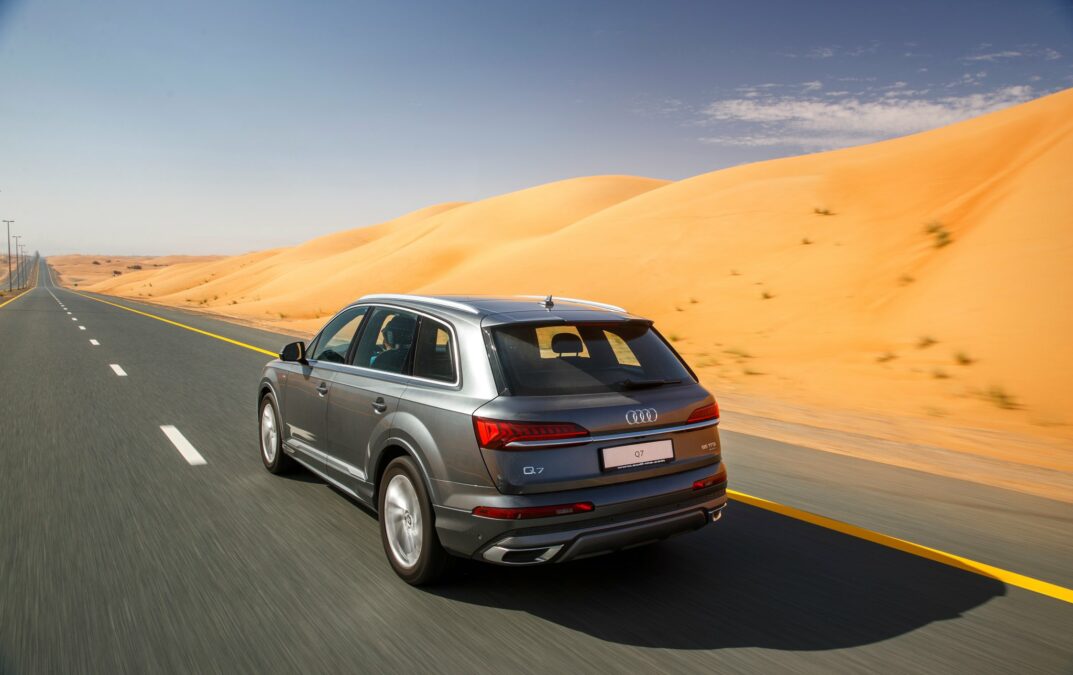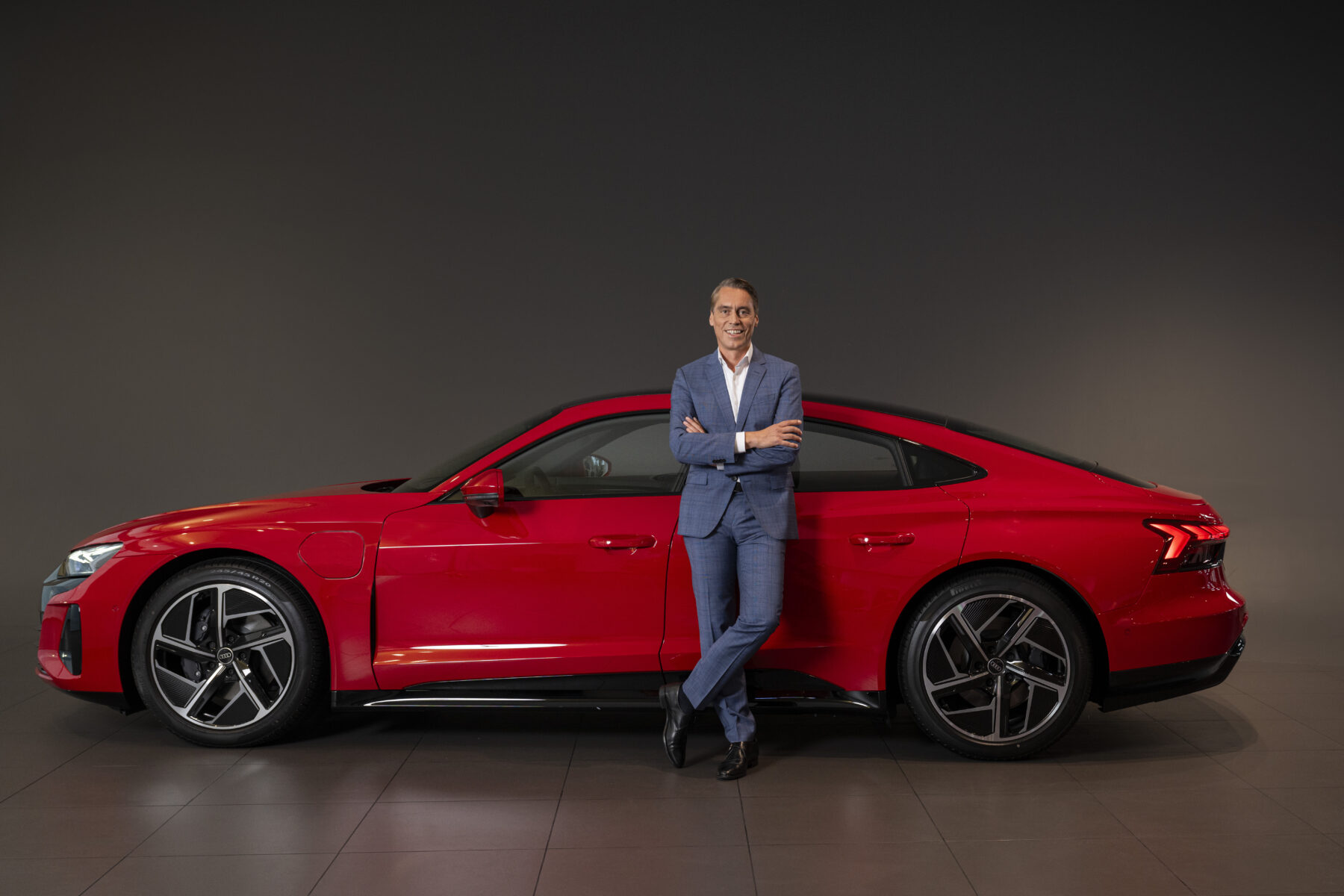Dubai, UAE — The luxury automotive industry is witnessing a transformative era, particularly within the Arab world, where the confluence of opulence, innovation, and a burgeoning interest in sustainability is redefining consumer expectations and brand strategies.
Audi, a vanguard of the high-end auto market, continues to set benchmarks with its forward-looking approaches and premium offerings.
In an industry where change is the only constant, Audi remains at the forefront, particularly in the realm of electrification and customer-centric innovations.
The Arab countries have shown a remarkable inclination towards electric vehicles (EVs), embracing these sustainable alternatives at an accelerated pace compared to their Western counterparts.
Audi’s expansions and enhancements in EV infrastructure exemplify a proactive approach to meet the increasing consumer appetite for eco-friendly luxury vehicles.
The luxury automotive industry in the GCC is evolving under the influence of diverse factors, including increased competition from international brands and a pronounced preference for high-performance vehicles.
René Koneberg, the Managing Director of Audi Middle East, explains how Audi is steering through this evolving landscape, addressing the unique demands and trends shaping the luxury automotive sector in the region.
How do you see the current state of the high-end auto industry in the Arab countries compared to other regions?
Koneberg: The Arab countries are experiencing a significant surge in the adoption of electric vehicles (EVs), particularly favoring premium models, with a 73 percent increase in Audi product sales across the Middle East.
The region’s distinct preference for luxury and performance, coupled with strategic investments in EV infrastructure, including partnerships with entities like the Ministry of Interior in the UAE, KAHRAMAA in Qatar, Mzaar Ski resort in Lebanon, EVO charging provider, sets it apart from the more gradual EV adoption and infrastructure development seen in Western and European markets.
What trends influence the GCC region’s luxury automotive industry?
Koneberg: In the GCC region, the luxury automotive landscape is evolving, primarily influenced by introducing diverse options, particularly with the advent of Chinese brands. This influx sparks heightened competition, prompting brands like Audi to accentuate unparalleled customer service, premium experiences, and customization – all highly valued by our customers.
There’s also a discernible penchant for high-performance and sports models, reflecting the region’s enthusiasm for dynamic driving experiences. Exceptional service and a premium buying journey are imperative for luxury car purchasers. Audi’s steadfast focus in these domains underscores its commitment to efficiently and innovatively meeting the distinct preferences of the GCC market.
What unique features distinguish Audi from other regional high-end brands?
Koneberg: Audi distinguishes itself in the GCC region through its heritage, which is deeply rooted in global and regional markets and emphasizes our premium positioning. Our extensive regional dealer network, supported by significant infrastructure investments, ensures unparalleled access and service for our customers. This network signifies our commitment to excellence and a foundation of offering personalized experiences, as seen in our Audi exclusive program and the Audi Sport lineup.
The Audi exclusive program offers extensive customization options coupled with Audi’s premium service, highlighting its dedication to superior customer care and the brand’s focus on individuality. Audi’s emphasis on performance is also evident in our Audi Sport lineup, including high-performance models like the RS e-tron GT, the RS6 Performance, and the RS7 Performance, catering to luxury and thrill-seekers alike.
How does Audi tailor its products to meet the preferences and demands of consumers in the Arab world?
Koneberg: Audi customizes its approach to the Arab market with initiatives that cater to regional tastes for innovation and luxury. Beyond our Audi Exclusive Program, which offers unique editions like the RS Q8 40 Jahre Edition and the Audi S6, S7, A8, and Q8 Kingdom Edition with options for advanced seating and entertainment systems for comfort lovers, as well as performance upgrades for those who demand dynamism.
We’re now making it easier than ever to become an Audi owner. Our array of leasing options across the range opens new pathways to ownership, providing flexibility and accessibility to our customers. Coupled with the advanced Audi Assurance Package (AAP), which provides the customer with an additional 3-year manufacturer warranty, these options are tailored to enhance the customer journey from acquisition to ownership.
Further enriching the Audi experience, our digital offerings in aftersales support exemplify our commitment to convenience and quality service. From online service bookings to digital consultations, we’re leveraging technology to ensure every aspect of owning an Audi is seamless. These initiatives, combined with our exclusive services, affirm our dedication to meeting the sophisticated needs of our customers in the Arab world, blending our signature quality with personalized luxury, performance, and an enhanced ownership experience.
How does the economic landscape of the Arab World influence Audi’s pricing?
Koneberg: In the Arab world, Audi’s approach to pricing reflects our vast product portfolio, which is designed to meet diverse customer needs through various product packages. We aim to offer the best value, ensuring our pricing aligns with the premium quality and innovation our vehicles embody.
The introduction of services like the Audi Extended Warranty, PitStop, Service Cam, and Mobile Service capabilities further underscores Audi’s commitment to customer satisfaction, reflecting confidence in the quality and longevity of its products. Through this approach, Audi adeptly meets the luxury expectations of its customers in the Arab World, ensuring that its pricing strategy captures the essence of German luxury and innovation and resonates with the region’s economic vitality and consumers’ evolving preferences.

Looking beyond 2024, how does Audi see the Arab luxury car market?
Koneberg: Audi is optimistic about the future of the Arab luxury car market beyond 2024, expecting growth fueled by rising demand for electric vehicles (EVs) spurred by greater environmental awareness and investments in EV infrastructure.
The expansion of its e-tron lineup underscores Audi’s commitment to the future of electrification. Additionally, the brand anticipates a surge in demand for digital innovation and connected services, aligning with consumers’ desires for tech-integrated luxury experiences. Audi’s focus on developing digital ecosystems and connectivity features aims to boost customer engagement and satisfaction in response to these trends.
What are the challenges of the Arab luxury car market in the GCC? How are companies overcoming these challenges?
Koneberg: In the GCC’s Arab luxury car market, brands like Audi navigate economic uncertainties, evolving environmental regulations, and changing attitudes towards sustainability. Responding to global and regional environmental concerns, luxury car manufacturers are shifting towards electrification and improving vehicle efficiency, as seen in Audi’s e-tron series expansion.
Audi is adapting its strategy to meet its customers’ luxury and sustainability expectations, highlighting a proactive approach to the region’s unique challenges.
How would you compare the Arab customers’ approach towards e-mobility to that of customers in Europe or the Americas?
Koneberg: In Europe, the transition to e-mobility is propelled by strict emissions regulations and incentives, encouraging EV adoption among environmentally conscious consumers and supported by a robust charging infrastructure.
Government subsidies and tax breaks enhance EV attractiveness, marking a policy-driven shift. Conversely, in the Arab region, e-mobility gains momentum against a backdrop of economic prosperity, a preference for luxury and high-performance vehicles, and growing support for sustainable practices.
While the interest in EVs, especially in the luxury market, is rising as sustainability becomes a valued factor, the Arab world’s adoption of EVs lags behind Europe’s, with infrastructure development and public awareness gradually improving.
Are Arab customers looking for sustainable features in their luxury cars?
Koneberg: In the Arab world, customers prioritizing eco-friendly options in luxury cars is rising, although it remains somewhat nascent. The Audi brand is adjusting its approach globally by integrating eco-friendly features into its luxury vehicle range. This involves incorporating sustainable materials, such as those used for the Softwrap in the interior.
For instance, in the S line variant, Audi utilizes Elastic Melange, a recycled fabric made from 100% recycled polyester, for the Software. This material is also employed for door mirrors, headliners, pillars, and sun visors, thus bolstering the sustainability of the vehicle’s interior.
Additionally, components containing recycled materials are integrated elsewhere in the vehicle, such as the sound generators and the spacious storage compartment under the front flap, known as the frunk. Recycled plastic is also utilized in adjacent covers and trim parts, including a newly introduced plastic component in the front end, replacing previously used sheet metal around the fresh air intake. This strategic approach aligns with environmentally friendly objectives and caters to customers’ growing preference for eco-friendly innovations without compromising on luxury or performance.








